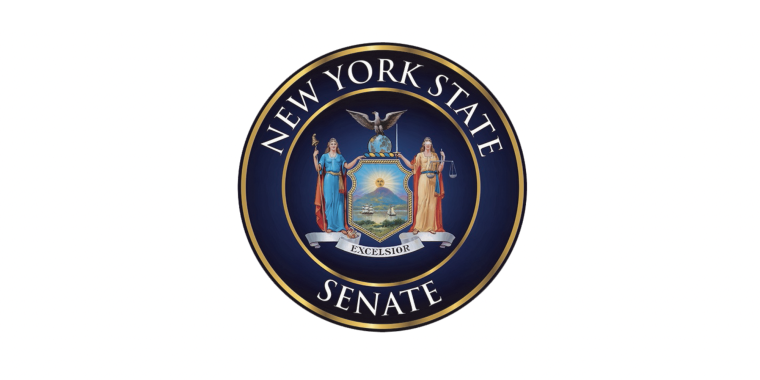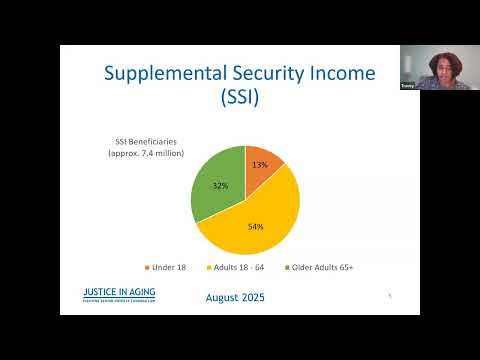
Testimony of State Senator Liz Krueger Before the New York City Council Committee on Housing and Buildings “Short Term Rentals -- Stimulating the Economy or Destabilizing Neighborhoods?” January 20, 2015
Liz Krueger
January 21, 2015
My name is Liz Krueger and I represent the 28th Senate District, which includes the East Side and Midtown areas of Manhattan. I want to thank Chairman Jumaane Williams and the members of the City Council Housing and Buildings Committee for providing me with the opportunity to testify today.
I have been working for a decade to understand and address the exponential growth of residential apartments being illegally converted into short-term transient units for visitors, commonly referred to as “illegal hotels.” After years of collaboration with a large task force of elected officials, neighborhood organizations, housing advocates, and city agencies, Assemblymember Dick Gottfried and I passed legislation in 2010 clarifying ambiguities in city and state laws that made it difficult for city enforcement agencies to take action against illegal hotels. Following the enactment of the state law, I continued working closely with the task force to support the subsequent introduction and passage in 2012 of Local Law 45, sponsored by then-Councilmember Gale Brewer, to classify illegal hotel violations as “immediately hazardous” and increase the fines the city can impose.
Attached to my remarks today, you will find a fact sheet my office developed that answers frequently asked questions about the 2010 state law and the city’s enforcement system, as well as testimony I provided to the City Council in support of Local Law 45. The two documents provide background information regarding the evolution of the 2010 state law, explain why illegal hotel activity is such a fundamental threat to our city’s housing market, and clarify exactly what types of short term rentals are permitted by law. I am more than happy to answer any questions on any of these topics today or in the future. However, in my testimony today, I want to the share some of the key lessons I have learned while wrestling with illegal hotel issues and offer a few recommendations for actions the City Council could take to curtail illegal hotel activity and increase the range of safe and affordable accommodation options for visitors.
The short-term rental of even a single residential unit in a multiple dwelling for part of the year can have extremely detrimental impacts on all the residents in the building. Even in cases where an apartment has a full-time resident who is only occasionally renting his or her apartment for less than 30 days at a time, the fact remains that unvetted, unsupervised strangers wandering the halls of a residential building create major safety and security concerns, as well as nuisances, for the residents who actually live there. I constantly hear from constituents whose quality of life and sense of safety have been undermined by illegal hotel activity occurring in as few as only one or two apartments in their buildings. When tenants and apartment owners decide to rent their apartments to tourists, they do so at the expense of all of their neighbors who have to live with the consequences and never had a chance to sign off on the deal in the first place.
Some online companies that facilitate illegal hotel activity are attempting to create a false distinction between “bad” illegal hotel operators and “hosts” who participate in the “new sharing economy”. Since the enactment of the state and city illegal hotel legislation, much of the illegal activity has shifted from being organized by a relatively small number of local operators, frequently unscrupulous building owners or managers, to large online companies such as Airbnb, FlipKey, and OneFineStay that act as both marketplace and middleman for hundreds of thousands of short-term apartments around the world. These online businesses have become highly profitable by ignoring state and local laws and ignoring the damage their business model does to communities. Although illegal hotel activity now takes place in a wide variety of forms in New York City, the fundamental impacts it has on housing, safety, and communities are the same.
Airbnb, currently the largest of these online platforms with a valuation estimated to be as high as $13 billion, likes to portray itself as a pioneer of the “sharing economy” movement fighting for everyday New Yorkers. The company now claims that it is more than happy to help get rid of the big illegal hotel operators on their site, and only wants the business of everyday New Yorkers renting out their primary residences every once in a while to tourists.
The facts do not match their words. A report recently released by State Attorney General Eric Schneiderman found that commercial illegal hotel operators controlling between 11 and 272 units accounted for such a wildly disproportionate share of Airbnb rentals between 2010 and 2014 that they essentially dominated the site. The reality is that they are lobbying for changes in the law that would create loopholes big illegal hotel operators could drive trucks through – but do nothing for the “everyday New Yorkers” who would be at increased risk of eviction if this law passes, let alone the many, many New Yorkers who will have to suffer with the risk of increased nuisances, security concerns, and even violent crime in their buildings.
To be crystal clear: for the so-called “regular” Airbnb hosts they claim they want to protect, the primary “threat” is not city and state enforcement. For these hosts, the primary threat facing them it is the reality that Airbnb has enticed them into behaviors that violate their lease agreements and serve as easy pretext for eviction proceedings. I will revisit this later in my testimony, but it’s a point that bears repeating. We have explained this to Airbnb repeatedly.
The costs illegal hotel activity imposes on our city’s housing market, residents, and neighborhoods dramatically outweigh any personal monetary gains the activity may generate for individuals who operate illegal hotel units. As many of you know, before my election to the Senate I managed nonprofit organizations fighting poverty, and my work focused especially on problems of hunger and homelessness. As an affordable housing advocate long before I took office, I know that when you take an affordable apartment off the market in New York City, it costs the city to replace that unit, at minimum, $500,000. Airbnb now claims that they would be more than happy to collect and remit $65 million in hotel occupancy tax if we change the law to allow the illegal activities the site facilitates. That amounts to 130 units of affordable housing – a drop in the bucket.
The proliferation of illegal hotel activity has removed thousands of desperately needed affordable units from the housing market. Most disturbingly, many of these illegal conversions have occurred in buildings regulated under our rent stabilization laws and/or tax abatement programs intended to preserve affordable residential units. In many cases, our constituents are forced to face harassment and even eviction proceedings by unscrupulous building owners and managers who want to free up more residential units for this illegal – but lucrative – alternate use. Warehousing units as illegal hotel rooms to remove them from the rent regulation rolls for a year or more has even become a even backdoor deregulation tactic used by some landlords. So taxpayers are unknowingly and unintentionally subsidizing this business model even as it shrinks the universe of available residences.
The Attorney General’s report on Airbnb found that the number of residential units used as short-term rentals grew at an explosive rate during its four-year review period, nearly doubling each year. As of January 2014, Airbnb had a total of 19,522 New York City listings on its site. 72% of these listings were for entire apartments in either multiple dwellings or non-residential buildings, violating building use and zoning laws. In 2013, more than 4,600 units were booked for three months or more. Almost 2,000 units were booked for more than six months of the year – rendering them totally unavailable for use by New Yorkers seeking homes. Although Airbnb is the largest of the online platforms, there are many others conducting similar transactions. As a result, the total number of residential units unavailable to everyday New Yorkers because of these online marketplaces is clearly much higher.
Virtually all residential leases, and cooperative and condominium governing documents, prohibit renters, cooperative shareholders, and condominium owners from renting their homes on a transient basis. Even if state and city laws were changed tomorrow to permit whole-apartment short-term rentals in multifamily buildings, anyone who engaged in this activity would continue to violate their leases or contractual ownership agreements and open themselves up to serious repercussions. This is a bedrock reality at the foundation of the real estate market in New York City and it will not change.
Numerous articles have appeared in the press in recent years about eviction cases initiated against both renters and cooperative shareholders who listed their homes on Airbnb and similar sites for violating the terms of their leases and/or corporate bylaws. My office has also received reports from tenant attorneys that more and more landlords have started eviction cases against rent regulated tenants who rented out rooms for less than 30 days, claiming that the tenants turned their apartments into commercial operations or were engaging in profiteering.
As a lifelong tenant advocate, I find it offensive that companies are actively recruiting tenants to list their apartments on their websites even though they are well aware they are putting residents at risk of eviction.
The creation of loopholes in the state and city laws that define the legal occupancy of multiple dwellings in New York City would make it impossible for enforcement agencies to take effective action against even the worst illegal hotel violators. One of the most important lessons I learned from my years working with the illegal hotel taskforce and government agencies is that the city’s enforcement agencies can only issue and sustain violations for illegal hotel activity if city and state laws provide a single definition of what constitutes legal permanent occupancy in multiple dwellings. Even whether “permanent occupancy” is defined as 30, 60, or 90 days can have a significant impact on investigations.
During an extended series of meetings Assemblymember Dick Gottfried and I held with senior city agency staff to draft what became the 2010 state law, we heard again and again that creating any carve-outs in the legislation for specific types of activities that some might consider less objectionable – such as residents who truly rent out their apartments “once in a blue moon” – would make all illegal hotel enforcement impossible. And again, it is well worth remembering that the city’s enforcement system, because it is complaint-driven and prioritizes sites with consistent, repeated complaints, poses virtually no problem to this “once in a blue moon renter,” who instead is much more likely to face consequences in the form of an eviction action for violating his or her lease.
The regulatory frameworks recently implemented by Amsterdam, Portland, and San Francisco to legalize the use of certain types of residential housing for tourists are already proving unworkable, and must not be replicated in New York. The laws were passed in all three cities despite significant opposition from legislators, affordable housing advocates, tenants, owners of multifamily properties, and neighborhood associations. Opponents expressed serious concerns that the registration and licensing systems being created would be unenforceable, lead to the loss of housing for permanent residents, and harm tenants and responsible property owners. News reports from Amsterdam and Portland reveal that opponents’ concerns were well justified (the San Francisco law does not go into effect until February 1, 2015).
Months after Portland's law was enacted, only 73 Airbnb "hosts" had applied for a permit and the city appears to be able to do little to enforce compliance. Airbnb has repeatedly refused requests from Portland enforcement agencies and City Councilmembers to share the names and addresses of Airbnb "hosts" who are blatantly violating the law and endangering public safety. If Airbnb is refusing to share critical data with Portland, a city the company loves to celebrate as its first model "Shared City", we can only imagine how it would respond to similar requests from New York. [1]
In October, the Amsterdam City Council determined in October that the 22 full-time city inspectors dedicated to ensuring compliance with the new law were so overwhelmed by an explosion of complaints that the city needed to spend an additional 500,000 euros to hire more inspectors.[2]
The Mayor’s Office of Special Enforcement (OSE), a small multi-agency taskforce of city agencies with exclusive jurisdiction over illegal hotel enforcement, needs additional resources to stem the tide of illegal hotel activity. Throughout all the years I have spent working on illegal hotel activity, I have been exceedingly impressed by the expertise and dedication of OSE staff. OSE staff were instrumental in the drafting of the city and state illegal hotel laws, have initiated groundbreaking litigation against some of the worst violators, and issued dozens of vacate orders after finding conditions that placed people’s lives in immediate danger.
On a day-to-day basis, the OSE is responsible for responding to complaints of suspected illegal hotel activity from residents, visitors, community groups, and elected officials in every corner of the city. The OSE cannot issue violations simply based on online advertisements, complaints, or information collected by others indicating that illegal hotel activity is occurring. OSE investigators must visit every location – often multiple times – and be able to document substantial evidence of illegal hotel activity. OSE’s legal team then has to be prepared to prove each violation was correctly issued at the City’s Environmental Control Board. Each step of this process can be lengthy and requires the specialized knowledge the OSE has developed over the last decade.
The OSE’s staff does a phenomenal job but simply do not have the resources they need to address the number of complaints they receive. Despite the exponential growth of illegal hotel activity over the last year, the OSE’s budget has remained virtually unchanged.
I strongly encourage the City Council to examine how city government can help foster the development of more safe, legal, and affordable accommodation options for visitors in all five boroughs. There is a clearly a real market demand for tourist accommodations outside of core-Manhattan and at lower price points than those frequently available at large New York City hotels. In recent years, OSE staff extensively researched why more affordable accommodations were not being built to meet this demand. They concluded that one of the major hindrances is a provision in local law that makes it illegal to operate a for-profit hostel in New York City. OSE staff then spearheaded the drafting of City Council legislation (Intro. 1004/2013) that would make it possible for legal, commercial hostels to operate as long as they met all related zoning, safety, and regulatory requirements. I believe that if appropriately defined and regulated, for-profit hostels can meet a significant portion of the demand for affordable tourist accommodations, and urge this committee to schedule a hearing on this issue in the near future.
Thank you again for the opportunity to testify today. I look forward to working with the members of this committee to curb illegal hotel activity as well as on other critically important affordable housing issues.
[1]Tim Becker, "1600 Airbnb Hosts, Only 73 Permit Applications," KOIN 6, November 7, 2014; The Oregonian Editorial Board, "Airbnb Should Share Portland Hosts' Info With City to Ensure Safety, Permit Enforement," The Oregonian, December 29, 2014.
[2] “Amsterdam Admits It Can’t Cope with Airbnb Inspections,” DutchNews.nl, October 12, 2014.


